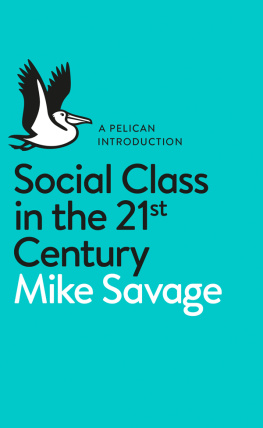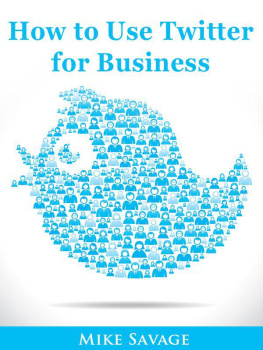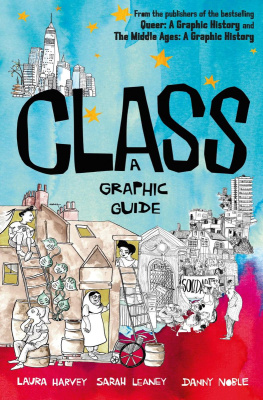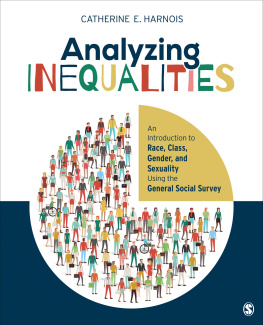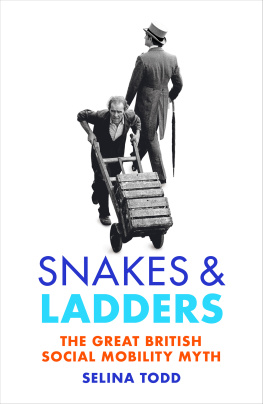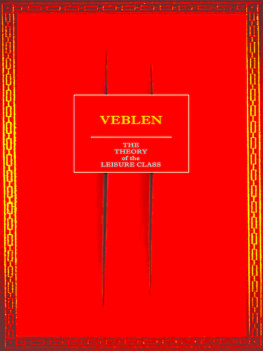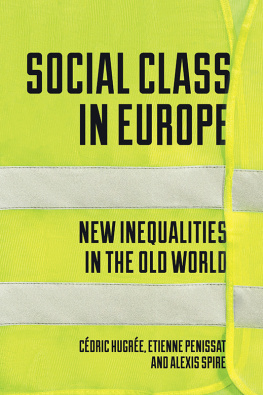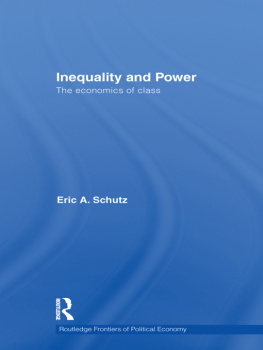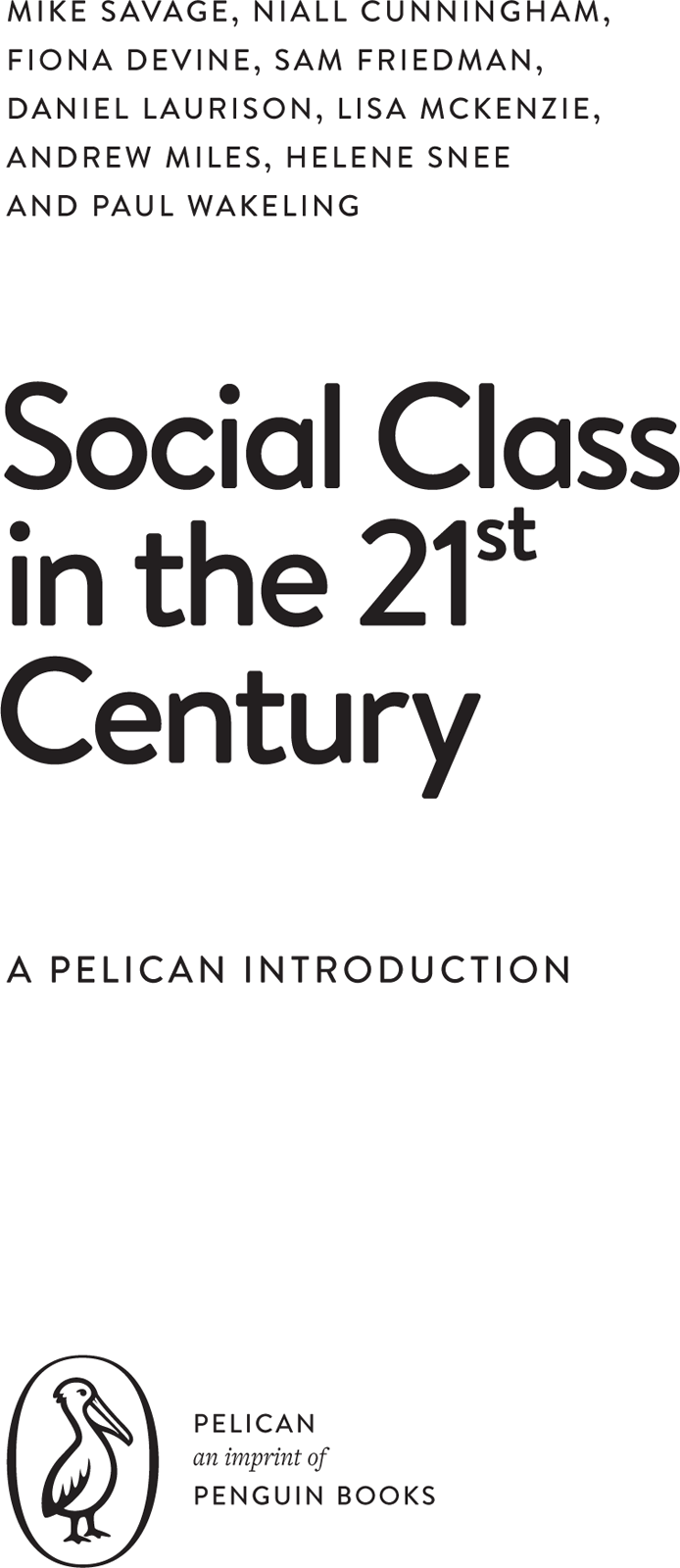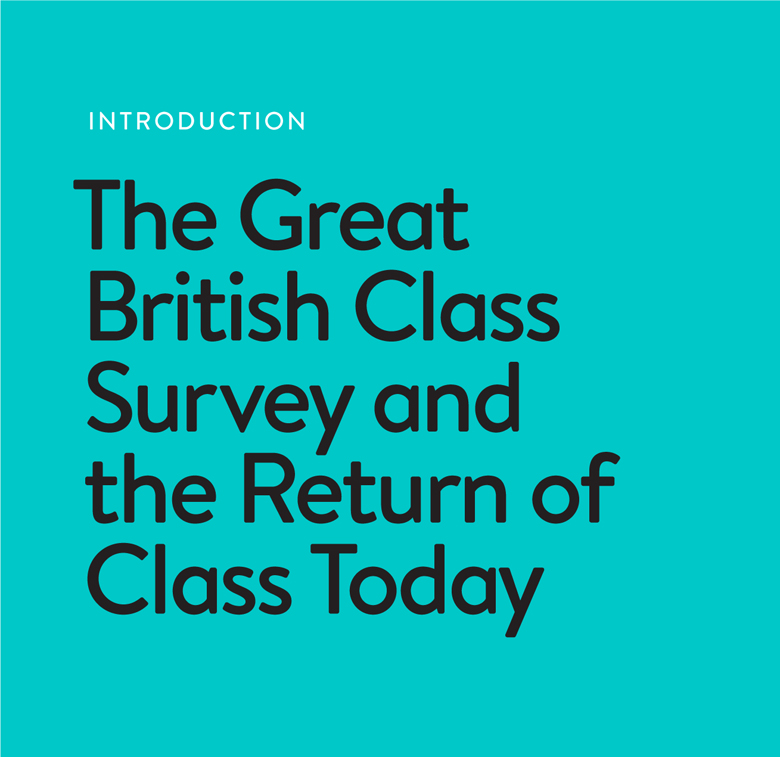Contents
PELICAN BOOKS
UK | USA | Canada | Ireland | Australia
India | New Zealand | South Africa
Penguin Books is part of the Penguin Random House group of companies whose addresses can be found at global.penguinrandomhouse.com .
First published in 2015
Text copyright Mike Savage, Niall Cunningham, Fiona Devine, Sam Friedman, Daniel Laurison, Lisa Mckenzie, Andrew Miles, Helene Snee and Paul Wakeling, 2015
The moral rights of the authors have been asserted
All rights reserved
Book design by Matthew Young
ISBN: 978-0-141-97892-5
THE BEGINNING
Let the conversation begin...
Follow the Penguin Twitter.com@penguinukbooks
Keep up-to-date with all our stories YouTube.com/penguinbooks
Pin Penguin Books to your Pinterest
Like Penguin Books on Facebook.com/penguinbooks
Listen to Penguin at SoundCloud.com/penguin-books
Find out more about the author and
discover more stories like this at Penguin.co.uk
List of Tables
List of Figures
Acknowledgements
This book has been a massive, wonderful, sprawling, collaborative effort. Mike Savage (Professor of Sociology at the London School of Economics) and Fiona Devine (Professor of Sociology at the University of Manchester) were the directors of the Great British Class Survey (GBCS), key points of liaison with the BBC, and led the project throughout. Mike took responsibility for the overall analytical strategy of the project as a whole, took the lead on analyses of our relationship to other studies of class (chapters ). Sam Friedman (Assistant Professor of Sociology at the London School of .
Mike was responsible for the drafting of the different chapters of the book into an integrated narrative and wrote the conclusion. He is ultimately responsible for all the books failings!
We would like to thank numerous others who have not contributed to this book, but have assisted invaluably to the underpinning research along the way. These include Johannes Hjellbrekke (University of Bergen, Norway), Yaojun Li (University of Manchester), Mark Taylor (University of Sheffield) and Brigitte Le Roux (Universit Paris Descartes Sorbonne Paris Cit), who have all carried out data analysis on the GBCS (which has informed our work). At the Department of Sociology at the London School of Economics there has been a wonderful team of outstanding graduate students Nell Beecham, Katharina Hecht and Georgia Nichols who have provided supplementary research, critical reflections and moral support. Wilf Horsfall has provided excellent graphic visualizations of some of our work. We would also like to thank Mel Nichols for his astute insights on an earlier draft, which only an experienced journalist could bring, and which helped enormously in redrafting the final version of this book. Georgia did a remarkable job correcting the proofs and identifying (and mostly resolving) problems that had previously escaped us.
Wider thanks are also due to our many supporters. The Sociology Department at the University of Manchester was the intellectual home from which this research emerged, and we would like to thank Beverley Skeggs, Alan Warde, Wendy Bottero, Nick Crossley, Colette Fagan and others for their interest in rethinking the meaning of class in our changed world. The support of the ESRC Centre for Research on Socio-Cultural Change (CRESC) based at the University of Manchester and the Open University has been fundamental in developing this project. We would like to thank particularly the team who worked on the Cultural Capital and Social Exclusion project (Tony Bennett, Elizabeth Silva, Alan Warde, Modesto Gayo-Cal and David Wright) which was a vital underpinning for the research here. More recently, the support of colleagues in the Department of Sociology at the University of York (notably Laurie Hanquinet and Roger Burrows), and, since 2012, in the Department of Sociology at the London School of Economics, has been essential in seeing this project through to fruition. We are grateful to the many London School of Economics students who displayed their characteristic energy and enthusiasm in responding to this work in seminars and classes as our thinking progressed. We have benefited from the outstanding administrative support of Louise Fisher (Departmental Manager), Attila Szanto (Research Manager) and Louisa Lawrence (Personal Assistant), who gave wonderful help in assembling the final version of the manuscript. We would also like to thank our London School of Economics colleagues John Hills (from the Social Policy Department), Niki Lacey (from the Law Department) and David Soskice (from the Government Department) for their ongoing enthusiasm for and encouragement towards this project. We are very excited that this book is published in the same year that the London School of Economics International Inequalities Institute was launched, which will be a platform for further investigations of the themes we raise here.
This project would have been impossible without the terrific support of the BBC. They never told us how much of their money they invested in the GBCS, but it must have been considerable, and we hope that this book is testimony to the way that public social science is not confined to the academy, but can benefit from collaboration with the media. In particular, we would like to thank Richard Cable, Michael Orwell and Philip Trippenbach for their vital roles in keeping this project on the road, sometimes in circumstances when the going was hard.
Finally, we would like to thank Josephine Greywoode at Penguin for her support and excellent advice on earlier drafts of this manuscript, and Louisa Sladen Watson for her expert copy-editing, which greatly improved the books clarity.
London, Manchester and York, April 2015
In the first quarter of the twenty-first century, inequality is firmly back in the public eye. In 2014 the World Economic Forum highlighted income disparity as one of the principal risks to economic and political security today. International non-governmental organizations such as Oxfam have drawn attention to the cycles of advantage transmitted across generations and pointed to the unequal opportunities that reinforce privilege. Longstanding problems such as poverty appear to be getting worse even though we live in more affluent times, and have, increasingly, been juxtaposed with the burgeoning fortunes of the super-rich.
This book shows, focusing on the British case, how these spiralling levels of inequality are remaking social classes today. It is one thing to point to growing economic inequalities, but we also need to know how people themselves understand these divisions. Do they overlap with wider social, cultural and political fractures? Can we identify distinctive social classes who share common lifestyles, identities, social networks and political orientations as well as levels of income and wealth? Only in this case can we talk about class for itself (i.e. class as composed of people who are class conscious), rather than class in itself (i.e. class as a social group), to use Karl Marxs while economists, who in recent decades have done most to demonstrate the growth of inequality, tend not to use the concept of social class at all, which they see as too crude to capture contemporary economic divisions.

